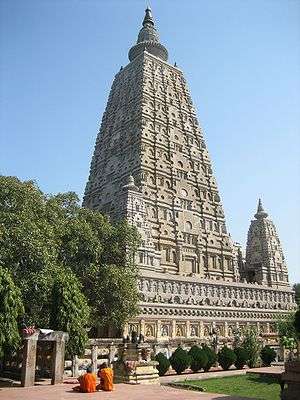History of Indian archaeology

The history of Indian archaeology spans from the 19th century to the present, and includes a wide variety of archaeologists investigating the region's history. The history of archaeology began in Western Europe, and the earliest scholars to take an interest in the archaeology of the Indian subcontinent were Western European travelers in the 16th, 17th and early 18th centuries.
Early antiquarian interest
The earliest European written accounts of India's ancient monuments and Hindu temples were produced by sailors and travelers in the 16th, 17th and early 18th centuries CE. Some of these accounts included ground plans and drawings of the buildings, however they lacked any historical discussion of their origins, with the exception of several references to Alexander the Great, the Macedonian emperor who had conquered much of Northern India in the 4th century BCE.[1]
Alexander Cunningham and the Archaeological Survey of India
"Archaeology in South Asia did not crystallize out of the informal archaeology of enthusiastic amateur South Asians, but was created by elite foreigners, at the capital, by an act of state."
Scholarly investigation into Indian archaeology was largely influenced by Alexander Cunningham, who became the first director of the Archaeological Survey of India.
References
Footnotes
- ↑ Chakraberti 1982. p. 326.
- ↑ Trautmann and Sinopoli 2002. p. 516.
Bibliography
- Chakrabarti, Dilip K. (1982). "The Development of Archaeology in the Indian
Subcontinent". World Archaeology. 13 (3). pp. 326–344. line feed character in |title= at position 46 (help)
- Trautmann, Thomas R.; Sinopoli, Carla M. (2002). "In the Beginning was the Word: Excavating the
Relations between History and Archaeology in South Asia". Journal of the Economic and Social History of the Orient. 45 (4). pp. 492–523. line feed character in |title= at position 47 (help); line feed character in |journal= at position 16 (help)